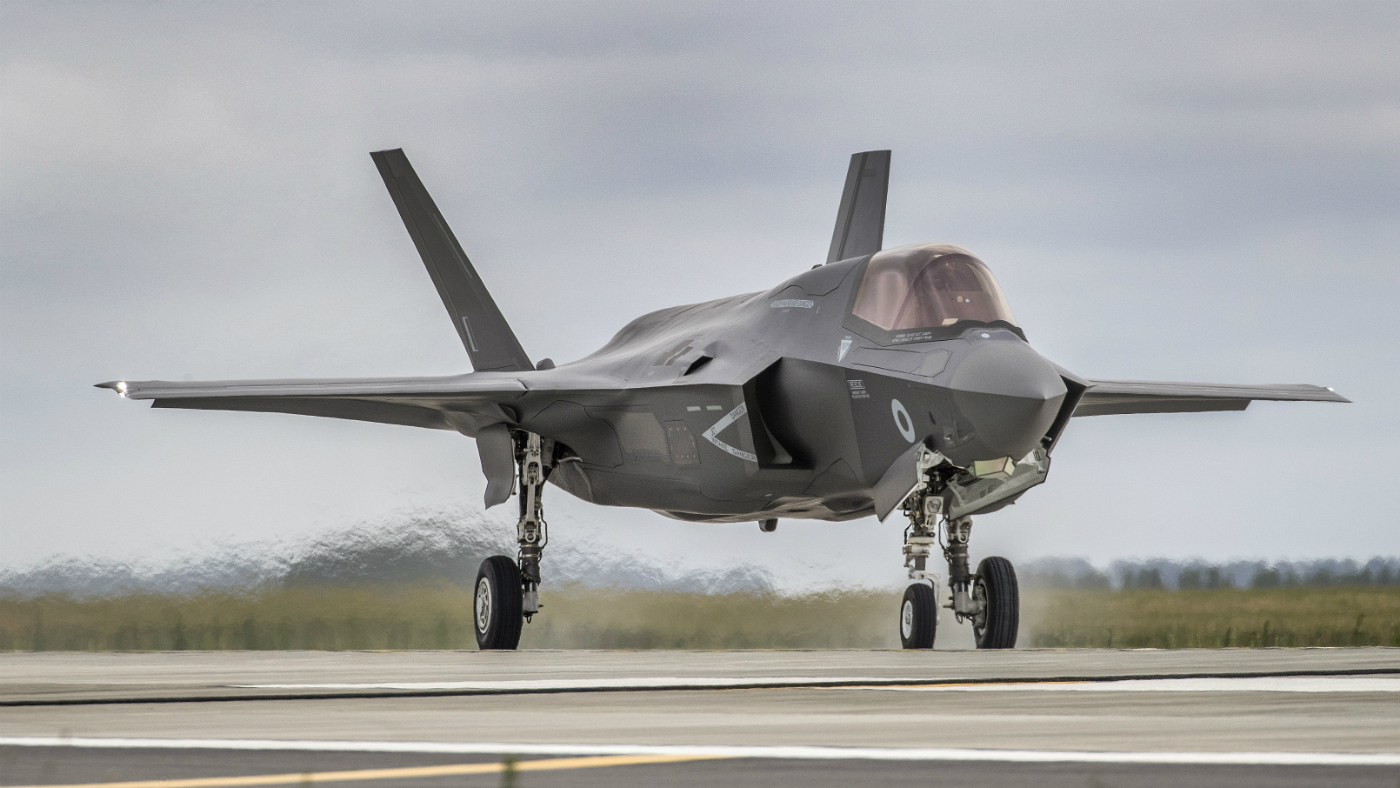Why UK’s 16 new F-35 fighter jets can’t fly
Stealth aircraft grounded as faulty fuel tube blamed for US military plane crash

A free daily email with the biggest news stories of the day – and the best features from TheWeek.com
You are now subscribed
Your newsletter sign-up was successful
The UK has been forced to ground all 16 of its newly purchased F-35 fighter jets after a malfunctioning fuel tube was identified as the cause of a recent US military jet crash.
A spokesperson for the F-35 programme said that “the US and its international partners including the United Kingdom and Israel have temporarily suspended F-35 flight operations for a fleet-wide inspection of a fuel tube within the engine on all F-35 aircraft”, according to Turkish newspaper Daily Sabah.
The US Marine Corps aircraft crashed in South Carolina on 28 September. No injuries were reported and the pilot ejected safely.
The Week
Escape your echo chamber. Get the facts behind the news, plus analysis from multiple perspectives.

Sign up for The Week's Free Newsletters
From our morning news briefing to a weekly Good News Newsletter, get the best of The Week delivered directly to your inbox.
From our morning news briefing to a weekly Good News Newsletter, get the best of The Week delivered directly to your inbox.
That same day, the Pentagon announced that an $11.5bn (£8.7bn) contract had been awarded to contractor Lockheed Martin to deliver 141 F-35 planes - which works out at $89.2m (£67.5m) per jet, says the BBC.
The Daily Telegraph reports that checks are now being carried out to see “whether the F-35s, the most advanced fighter jet ever created, have the same tubes as those which were used in the plane which went down”.
A UK Ministry of Defence spokesperson said: “Safety is our paramount concern, therefore the UK has decided to pause some F-35 flying as a precautionary measure while we consider the findings of an ongoing inquiry.”
The ministry added that scheduled F-35 flight trials from aircraft carrier HMS Queen Elizabeth, currently in Florida, would continue, although only one of the 16 jets had been cleared to resume operations as yet.
A free daily email with the biggest news stories of the day – and the best features from TheWeek.com
The drama is “an embarrassing development for the F-35 programme, the largest and most expensive weapons project of its type in the world”, says the Telegraph. The new planes arrived in the UK in the summer, as part of a £9.1bn scheme to buy a total of 138 planes, The Guardian reports.
It remains unclear how many jets will be grounded for the long term, although Foreign Policy notes that “if the faulty part is found, it will be removed and replaced”. Inspections are reportedly expected to be completed by the end of the week.
“The Italian Air Force has already completed its inspections and, as it did not find the faulty part, is back to normal flight operations, according to two sources,” the news site adds.